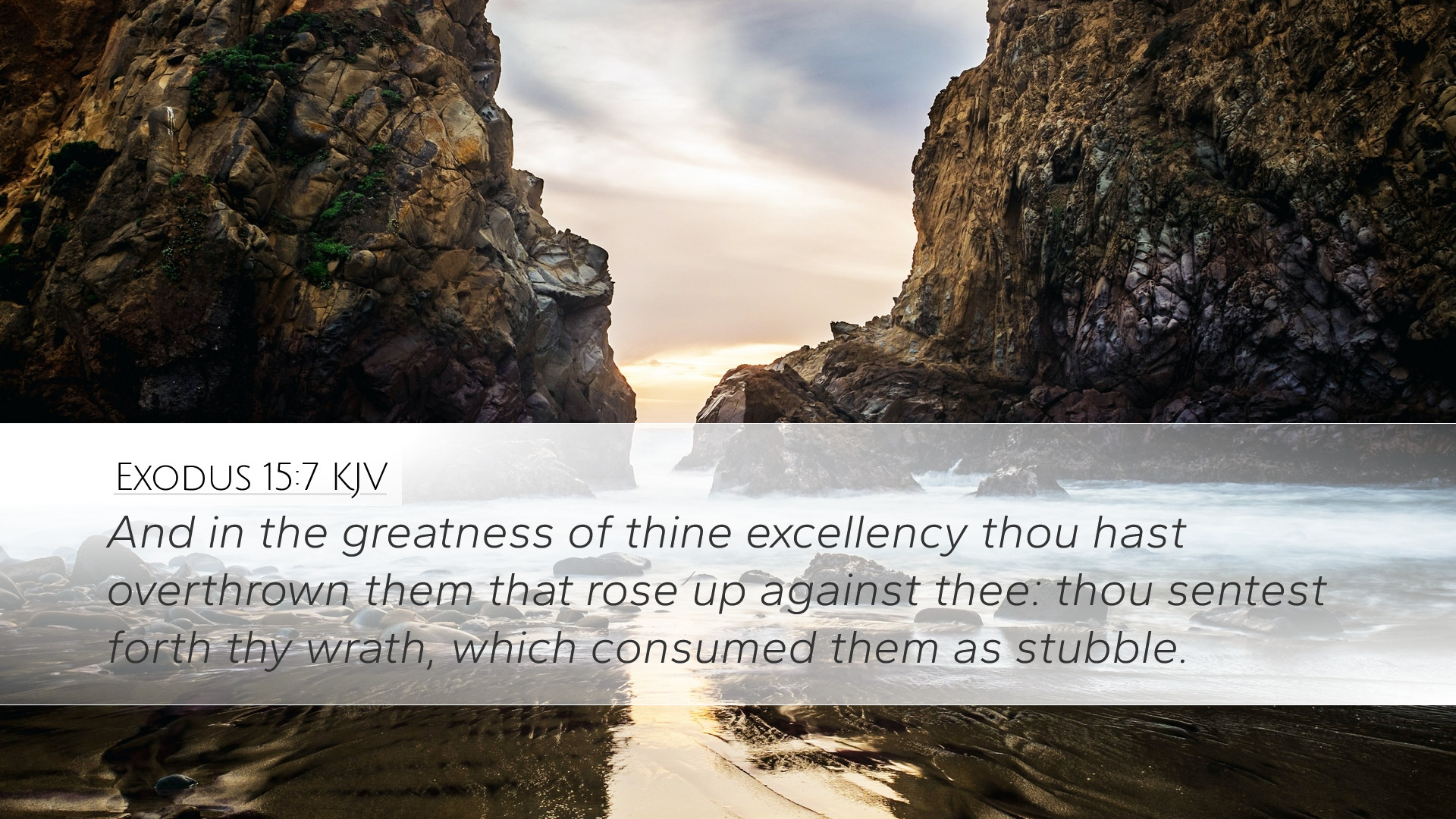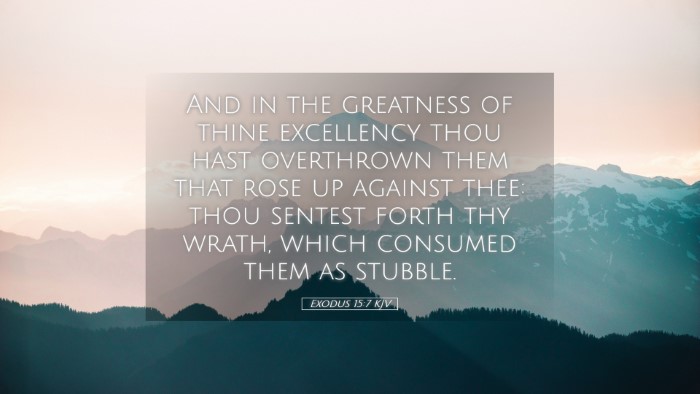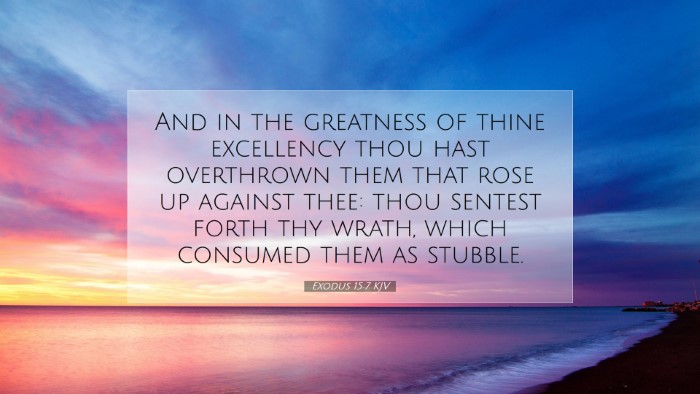Commentary on Exodus 15:7
Verse Context: Exodus 15:7 states, “And in the greatness of Thine excellency Thou hast overthrown them that rose up against Thee: Thou sentest forth Thy wrath, which consumed them as stubble.” This verse is situated within the song of Moses and the children of Israel after their miraculous deliverance from Egypt and the destruction of Pharaoh’s army in the Red Sea.
General Overview
This verse emphasizes the power and majesty of God in His judgment against the enemies of His people. The song serves as a celebration of Yahweh’s mighty acts and sets forth a theological understanding of God as a warrior and savior.
Insights from Commentators
Matthew Henry
On God’s Mightiness: Henry points out that the greatness of God is manifest not only in creation but profoundly in His deliverance of Israel. The overthrow of the Egyptians signifies God’s almighty strength in comparison to the futility of human strength when opposed to divine will.
On Wrath as an Agent of Justice: Henry elaborates that God’s wrath is not arbitrary; it arises from His holiness and justice. The destruction of Pharaoh’s army is depicted as a righteous enactment of divine judgment against those who opposed God’s plan for His people.
Albert Barnes
On the Egyptians’ Fate: Barnes notes that the language of consuming the enemies “as stubble” indicates the swift and total destruction by God’s wrath, emphasizing the utter defeat of the Egyptian forces. This destruction serves as a warning to all nations of the power of God against those who defy Him.
Theological Implications: Barnes emphasizes that this passage teaches modern readers about God’s readiness to defend His people. The song depicts not only historical events but also God's character as a protector and avenger, reassuring believers of His strength and commitment to justice.
Adam Clarke
Cultural and Historical Insight: Clarke provides an analysis of the historical context surrounding this miracle. He reflects on the cultural significance of the Song of Moses in ancient Israelite worship, elevating the importance of remembering God's deliverance in the life of the community.
The Divine Warrior: Clarke highlights the theme of God as the Divine Warrior who engages in battle for His people. He argues that the imagery used is not merely poetic but indicates how Israel viewed their relationship with God, seeing Him as their ultimate protector in times of threat.
Thematic Analysis
- The Excellency of God: The verse communicates the excellence of God’s divinity, suggesting a distinction between the Creator and His creation. This theme encourages believers to recognize and celebrate God’s sovereignty.
- Judgment and Mercy: While God’s judgment is demonstrated in the destruction of the Egyptians, the resulting liberation of Israel underscores His mercy. This duality enriches our understanding of God’s character.
- Divine Providence: The events surrounding the Exodus illustrate God’s providential care for His people. This is foundational for understanding the broader narrative of redemption found throughout Scripture.
Application for Today's Believers
Exodus 15:7 serves as a powerful reminder of God's might, not just in the historical context of Israel but in the lives of contemporary believers. Understanding the balance of God’s wrath and mercy fosters a deeper relationship with Him:
- Encouragement in Trials: Believers are reminded that God fights for them against spiritual adversaries, providing hope amidst struggles.
- Call to Worship: Just as Israel sang praises, followers today are called to worship God for His deliverance and persistent presence in their lives.
- Advocacy for Justice: Aligning with God’s character, believers are encouraged to stand for justice in their communities, reflecting His righteousness.
Conclusion
Exodus 15:7 encapsulates fundamental truths about God’s character—His might, justice, and mercy. By integrating insights from respected commentators, this verse continues to resonate with and challenge believers, encouraging them to recognize the greatness of God in their lives.


